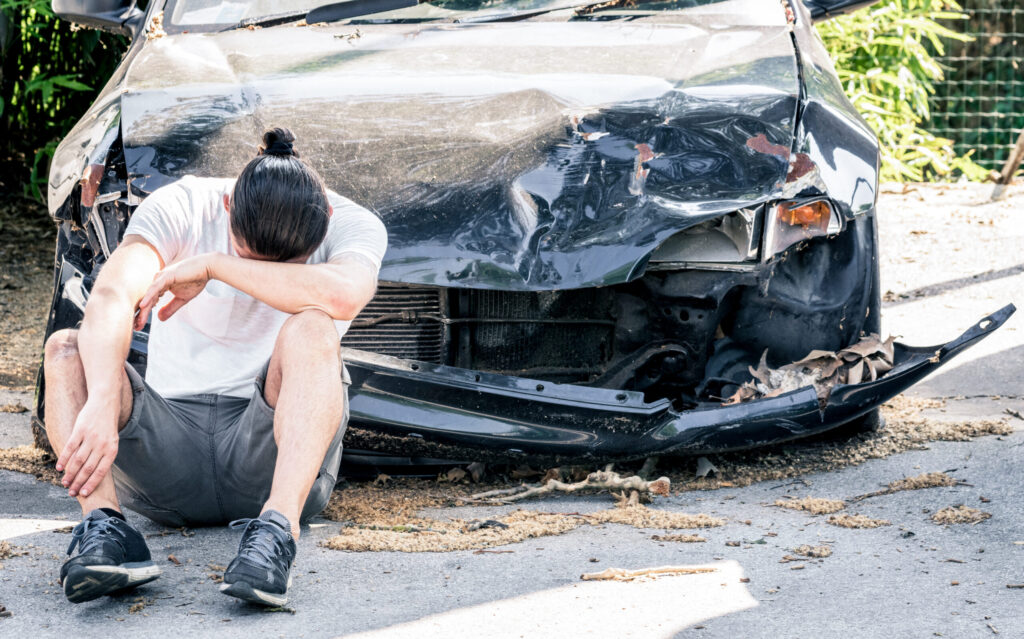Accidents involving motor vehicles, especially severe ones, often leave behind more than just physical scars. The psychological ramifications of such traumatic incidents are frequently overlooked but can have long-lasting effects on victims and their loved ones. In this article, let’s explore the various aspects of mental health issues that arise after an automobile accident and the support systems available for victims to overcome these challenges. If you’re in need of some advice, you can keep reading for more information.
Legal Support Following a Truck Accident
After a traumatic vehicle accident, especially one involving large commercial vehicles like trucks and semis, victims need to focus on their physical and mental recovery. However, this process can be impeded by the need to navigate the legal complexities of dealing with insurance claims, compensation, and parties at fault. Therefore, it’s advantageous to enlist the help of an experienced truck accident lawyer in Albert Lea, MN, who can handle the legal aspects and advocate for the victim’s rights.
An expert truck accident lawyer will work tirelessly to gather evidence that substantiates the victim’s claim and negotiate with the responsible parties to ensure just compensation is received. This financial support is crucial for covering medical expenses, lost wages, and any rehabilitation costs that may be necessary. It can also relieve some of the stress associated with the recovery process, allowing the individual to focus on their mental health and well-being.
Having a trustworthy legal professional on one’s side can not only improve the chances of a favorable outcome in court but also provide a sense of security and support during an emotionally challenging time for the victim and their family. This, in turn, can have a positive influence on their mental health journey. Most personal injury attorneys work on a contingency fee basis, so they will take their payment as a percentage of your final settlement or judgment.
The Impact of Vehicle Accidents on Mental Health
It’s not uncommon for survivors of motor vehicle accidents to experience a variety of psychological symptoms. Shock, disbelief, confusion, and guilt are some initial reactions that might be expected after a traumatic event. However, ongoing distress and emotional disturbance can also manifest, leading to long-term issues if left untreated. The severity of these symptoms often depends on the nature of the accident and the extent of physical injuries sustained.
Post-traumatic stress disorder (PTSD) is a common mental health issue experienced by accident victims. If not addressed promptly, this can lead to anxiety, depression, and even suicidal thoughts in some cases. It’s essential for accident survivors to seek advice from qualified mental health professionals, such as counselors near me, who can provide support and guidance on coping strategies to mitigate the impact of PTSD. Therapy has a wide range of general benefits too, so it’s always worthwhile to explore mental health treatment options.
Coping Mechanisms and Tools for Recovery
There are several ways accident victims can cope with mental health issues in the aftermath of a traumatic event. Psychological interventions such as cognitive-behavioral therapy (CBT), eye movement desensitization and reprocessing (EMDR), and exposure therapy can be useful in addressing PTSD, anxiety, and phobias. Moreover, having a strong support network comprising family, friends, and therapists can ease the burden on the victim and encourage open communication and healing.
In addition to professional counseling, there are various self-help strategies that can be employed to aid mental recovery. Regular physical exercise, maintaining a healthy diet, getting enough sleep, and engaging in relaxation techniques such as deep breathing or mindfulness meditation can all contribute to improved mental health outcomes after an accident.
The Importance of Awareness and Prevention
Raising awareness about the psychological ramifications of vehicle accidents and the importance of seeking help can play a vital role in minimizing the long-term impact on mental health. Encouraging conversations about mental health and sharing resources, both within personal circles and through public campaigns, can contribute to destigmatizing these issues and promoting a supportive atmosphere for recovery.
Additionally, prevention strategies should be emphasized to reduce the occurrence of accidents and their subsequent psychological toll. This includes promoting road safety practices, addressing structural issues on highways, and advocating for tighter regulations on commercial vehicle operations. Taking a proactive approach to address these challenges can contribute to better mental health outcomes for accident victims and society as a whole.
As you can see, understanding the complex psychological ramifications of vehicle accidents is critical for providing comprehensive support and resources to those affected. A multidisciplinary approach involving legal, medical, and psychological professionals, as well as building awareness and emphasizing prevention measures, can mitigate the adverse effects on mental health and ensure a smoother recovery for accident survivors.

